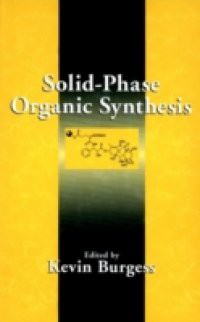Solid-Phase Organic Synthesis Edited by Kevin Burgess, Texas A & M University Efficient, high-throughput chemistry is now the focus of many research laboratories. Solid-phase organic syntheses are central to many of these combinatorial and parallel screening methodologies. Consequently, they have been a major scientific theme of the 1990s and promise to remain prominent for the first part of the new millennium. Indeed, a bewildering number of papers have entered the literature on this topic; some report minor modifications enabling transformation of solution-phase methods to a solid support, while others report major innovations. Solid-Phase Organic Synthesis collects, highlights, and critiques some of the key developments in the field. Leading practitioners explain different perspectives on diverse aspects of the area. Specific topics covered include: Syntheses of guanidines Palladium-catalyzed C-C bond forming reactions S_nAr reactions for the formation of heterocycles Sequence-specific arylalkyne oligomers Resin-supported capture agents and other reagents Synthesis on pins Monitoring of supported reactions using IR Solid-phase syntheses of natural product derivatives Of related interest: Combinatorial Chemistry and Molecular Diversity in Drug Discovery, Eric M. Gordon and James F. Kerwin 1998 (0-471-15518-7) 544 pp. Combinatorial Chemistry Synthesis and Application, Stephen R. Wilson and Anthony W. Czarnik 1997 (0-471-12687-X) 288 pp.

